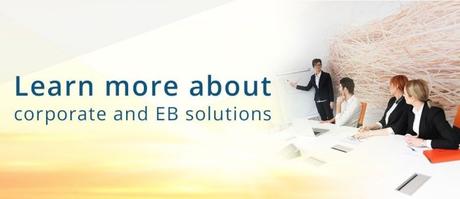Engaged employees are ready to do everything in their power to provide clients with positive experiences. Their productivity and morale are high, and they perform all the work in accordance with the company's best interests. Moreover, engaged employees are not interested in changing jobs, even when they are bombarded with recruiter's calls, because they see their future in this team.
However, keeping employees engaged is not an easy task. Here at Pacific Prime , we already talked about the correlation between employee benefits solutions and engagement at work, and how a well-structured employee benefit plan can minimize the risks associated with unengaged staff. In this feature, we would like to take a look at the latest technological advancements, and in particular, artificial intelligence, and how using such programs can influence your employee engagement strategy and outcomes positively.

AI and its impact on employee engagement at work
Artificial intelligence programs and apps are already taking forms of intelligent assistants in our everyday lives. Siri and Bixby are great examples here, and as such they are also getting more popular in the corporate environment. AI's algorithms allow them to learn as they process more and more data continuously, and thus they enable businesses to streamline processes, interpret data better, provide more accurate predictions, and cut down costs.
But how is AI affecting employee engagement at work? Low work engagement or presenteeism has its root causes in personal issues, workplace culture , physical and mental health problems, among others. Clear communication, employer branding status, as well as employee assistance programs and employee recognition schemes, are some of the measures to keep high engagement levels in an organization. Artificial Intelligence has the potential to help HR managers in these tasks.
AI's role in creating positive recruitment and onboarding experience
AI tools could assist an organization with the recruitment and onboarding processes by utilizing the job description data to search for the right candidate online. They can look through the CVs of the candidates, their profiles in social media, reference letters, and other information. This procedure is one of the most time-consuming tasks faced by recruiters. Such programs can then communicate with potential hires about the timeline and result of their application, saving precious time for the manager and creating a positive and professional experience for the candidate.
Newly acquired talents often flood HR departments with many questions related to payments, holidays, social benefits, and their general rights. Since providing answers to these questions can be repeatable and time-consuming for HR specialists, artificial intelligence comes to the rescue with the help of increasingly intelligent chatbots. New staff can be "in the loop" from even before day one in the firm, leaving a good impression and eliminating communication lull between the new hire and the company.

AI programs to improve communication and knowledge sharing
AI can gather data based on the needs and feedback of the individual to help provide the personalized answers any of the employees might have as well as help HR managers monitor each of the employee's engagement. Based on that information, HRs can make a decision on how to best re-engage the employee, be it by proposing assignment to a new project, changing teams or adding new responsibilities (matched with revised compensation, title, etc). Advancement opportunities allow top performers to feel continuously challenged, and in return, engaged in the company.
With the help of AI chatbots, employees can also easily get information about strictly HR matters such as company leave policy, or tap into an internal knowledge sharing hub where they can quickly find colleagues, contacts, and procedures without spending (sometimes lots of) time on searching through multiple databases to get what they need.
AI's help in managing benefits and rewards
AI program can track employees' work performance, attendance, illnesses, voluntary projects as well as the progress of personal goals within the organization. AI can then, using this data, coach the employee, recommend and schedule training to improve and develop certain skills, inform about a new project they can participate in, and even allocate and communicate about a reward granted.
Giving feedback and creating an opportunity to develop within the organization is one of the re-engaging strategies HRs are using nowadays. With the help of an automated program who can predict certain behaviors, and act on them, re-engaging and keeping employees engaged could be a little bit easier in the future.
How Pacific Prime can help your business in keeping your employees engaged?
As a world's leading employee benefits insurance brokerage firm, Pacific Prime can help you devise and implement a well-suited group health insurance and employee benefits plan for your organization. Since overall wellbeing and physical and mental health are among the pillars of a successful employee engagement strategy, having an experienced and thorough partner is crucial for choosing and managing an employee benefits plan that is relevant to your employees.
Our unique "Broker framework" consists of three strategic components: Consulting, Policy Broking, and Plan Administration, which allow us to support and advise you on corporate insurance matters at all stages of your contract. Contact our team today for more information!

